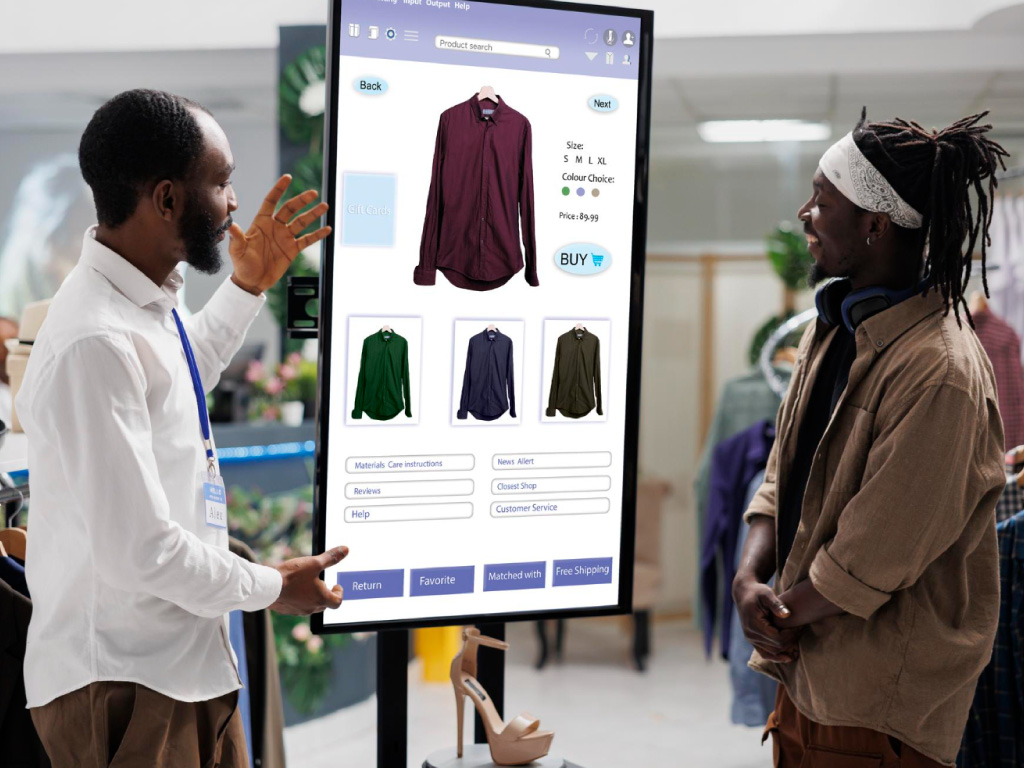In 2025, launching an ecommerce website in Kenya has become essential for businesses aiming to reach customers and grow revenue. As more consumers rely on mobile devices and online shopping, having a high-quality ecommerce site tailored to Kenyan preferences is no longer optional. It is a strategic investment that can differentiate your business in competitive neighborhoods such as Westlands, Industrial Area, Mombasa Road, Karen, Parklands, and Ngong Road.
If your business in Nairobi or elsewhere in Kenya is considering ecommerce, this guide outlines the features your online store needs, reviews the best platforms available today, and provides accurate cost estimates based on what you will find in the market.
Ecommerce web design in Kenya is booming. Recent data shows that more than 70 percent of Kenyan internet users have shopped online, and mobile phones account for the majority of browsing sessions. Payment services such as M-Pesa, PayPal, and Flutterwave now provide seamless online transaction experiences. Local courier companies like Sendy, G4S Courier, Wells Fargo, and SafeBoda ensure reliable delivery, while Kenyan search behavior is shifting to reflect commercial intent—for example, “buy perfumes Nairobi,” “home appliances Kenya,” or “order shoes online.”
Many businesses believe that “just having a website” is enough, but without proper ecommerce design, integration, and search engine optimization (SEO), a website becomes a digital brochure rather than a sales engine. Your site needs to perform, convert, and get discovered by customers searching online in Nairobi, Mombasa, Kisumu, Nakuru, Eldoret, and more.
1. Essential ecommerce features in Kenya
An effective ecommerce site must include several core elements if it is to succeed in the Kenyan market:
- Mobile responsiveness: Over 80 percent of Kenyan users browse on smartphones. Whether a customer is using an entry-level Android in Rongai or an iPhone in Lavington, your site must adjust seamlessly across devices.
- Local payment integration: This is non-negotiable. Your store must allow M-Pesa payments via Daraja API, as well as card payments through Pesapal, Flutterwave, or JamboPay.
- Inventory management: Whether you sell ten products or ten thousand, you need to manage stock levels and product information reliably, and provide promotional offers with ease.
- Delivery management: Integration with delivery services like Sendy, G4S Courier, or Wells Fargo allows you to define delivery zones in Nairobi and other Kenyan cities, calculate rates based on location and weight, and provide real-time tracking to customers.
- Search engine optimization: Your site should be ready to rank for phrases such as “buy shoes Nairobi CBD,” “online groceries Kenya,” “fashion store Westlands,” or “electronics store Industrial Area.” We handle keyword research, metadata, structured data, and speed optimization.
- Customer support integrations: Tools such as live chat, WhatsApp integration, and email forms reduce abandoned carts and address buyer questions quickly at checkout.
- Security and performance: With SSL certificates, page caching, image optimization, secure hosting, and fast load times, your store delivers a reliable customer experience.
2. Recommended ecommerce platforms for Kenya
Every business has unique needs, and at Kanatech Systems we match your platform to your goals, products, and team:
- WooCommerce on WordPress: Highly flexible, customizable, able to scale, and simple to manage. It supports M-Pesa and card payments via plugins. Ideal for retailers, boutique shops, and trade stores in South B, Ngong Road, Parklands, or Kisumu that want full control.
- Shopify: A hosted solution that allows quick store setups with reliable security and performance. Transaction fees may apply, but Shopify is suitable for fashion brands, cross-border traders, exporters, and small-to-mid teams who prefer ease of use.
- OpenCart or PrestaShop: Good for technically inclined teams who want independent management and deeper customization without needing a full development team.
- Custom Laravel or PHP solutions: For complex ecommerce models, high transaction volumes, and integrations with ERP systems, multi-vendor markets, or heavy custom features. These are ideal for manufacturers near Industrial Area or distributors on Mombasa Road.
3. Why choose Kanatech Systems for ecommerce web design Kenya
Kanatech Systems is based in Parklands, Nairobi, and specializes in ecommerce solutions that address the needs of Kenyan businesses. Our service is transparent, local, and performance-driven. Here’s how we stand out:
- Local market insight.
- Payment and delivery expertise.
- Built-in local SEO.
- Transparent pricing.
- Training and support.
- Performance tracking.
4. Growth and post-launch services
A live store needs ongoing attention. Kanatech offers:
- Digital marketing and SEO campaigns: We build local SEO, content strategy, email funnels, and social media ads to drive traffic and conversions.
- Hosting and security: We manage fast and secure hosting, regular backups, SSL, and site monitoring.
- Analytics and optimization: Monthly insights help us spot opportunities—higher-performing products, pages, or campaigns—and make data-driven updates.
5. The value of investing in ecommerce design in Kenya
Kenyan consumers are ready to buy online. If your products or services aren’t visible and easy to purchase, you lose sales daily. A refined ecommerce site:
- Impresses customers
- Ranks high on Google, capturing intent-driven searches like “buy electronics Nairobi” or “online bakery Kenya.”
- Supports mobile-first users
- Accepts secure payments and calculates delivery locally.
- Saves money over time compared to offline advertising or rushed DIY sites.
6. What to do next
If you have products, a shop in South C, Machinery in Embakasi, or any business aiming to sell online, the right ecommerce solution can unlock new revenue.
Visit www.kanatechsystems.com or call +254 725 959 830 to schedule a free consultation tailored to your business. Let’s build a store that sells, performs, and scales across Nairobi and beyond.
With your ecommerce store in 2025, you’re not just participating—you’re leading.
















